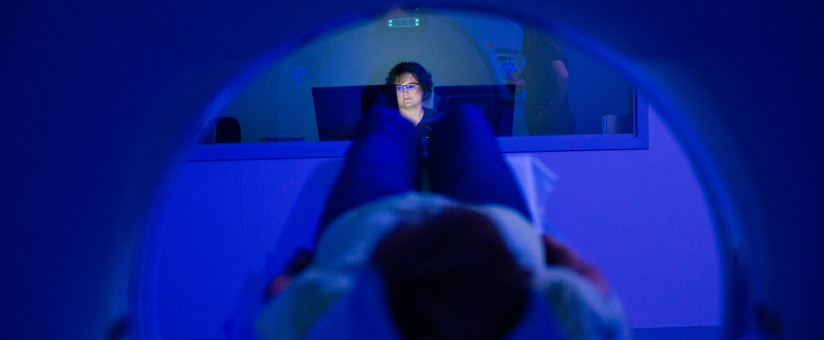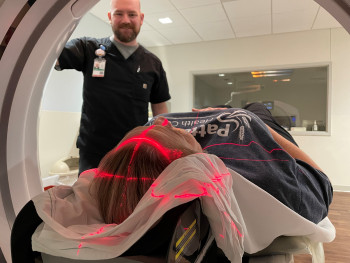Radiology
The experienced radiology team at Patterson Health Center works in close collaboration with other medical specialists to ensure you receive the care you need, whether it's for a routine screening or an emergency scan. Here’s an overview of the radiology services provided:
- General X-rays: Low radiation is used to capture images of the inside of the body, displayed digitally. These X-rays help diagnose both acute (e.g., injuries) and chronic conditions (e.g., bone cancer).
- CT Scans: Available with or without contrast, offering detailed images of the body’s organs, tissues, and bones. CT scans are used to assess trauma, guide procedures, detect diseases (like cancer or heart disease), locate blood clots, and monitor treatment progress. The scans cover a range of body areas including the brain, chest, abdomen, and spine.
- Ultrasound: Offered three days a week, including echocardiograms on Wednesdays. Ultrasound uses sound waves to create images of internal structures, assisting doctors in diagnosing various conditions.
- Bone Density Exams: A low-dose X-ray test focusing on the lower back and hips to detect osteoporosis or monitor the effectiveness of osteoporosis treatments. Typically performed every two years unless otherwise indicated.
- 3D Mammograms: Essential for early detection of breast cancer, providing more detailed images than traditional mammograms. This service aids in identifying potential cancerous changes in breast tissue.
- MRI: Available every Wednesday from 7 a.m. to 1 p.m., MRI creates detailed images to help diagnose conditions related to the brain, spinal cord, heart, blood vessels, bones, and joints. It can identify tumors, infections, trauma, and abnormalities in internal organs.
- Nuclear Medicine: By appointment only, this service uses small amounts of radioactive substances and a Gamma camera to diagnose and treat various conditions. It can detect abnormalities early, even before other diagnostic methods.
- C-arm: Used in pain management and surgical procedures, this device offers multiple movement capabilities during a single procedure, enhancing accuracy and effectiveness.
Each of these services is designed to provide accurate and timely results, helping your medical team make informed decisions about your care.


